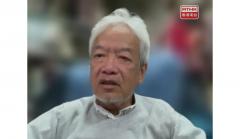簡介
Listen to #Hashtag Hong Kong every Sunday morning at 8.15
Focussing on issues affecting civil society, we'll hear from representatives of NGOs, associations, statutory bodies, and non-profit groups.
(Sundays 8.15am - 8.25am)
最新

Dr. Anthony Ying, the Chairman of the Cancer Prevention/Early Detection Subcommittee of the Hong Kong Anti-Cancer Society
I am Dr. Anthony Ying, the Chairman of the Cancer Prevention/Early Detection Subcommittee of the Hong Kong Anti-Cancer Society as well as an oncologist in Hong Kong. As pioneers in promoting cancer education, we, at the Hong Kong Anti-Cancer Society, recognise the significance of May as Skin Cancer Awareness Month. As summer approaches, let us emphasise the critical importance of raising awareness about this form of cancer.
Skin cancer is a prevalent disease and skin cancer is actually the commonest human cancer. Its global incidence rate is rapidly increasing. Although the rate in Hong Kong is comparatively lower than in the West, the number of new cases continue to rise each year. This can be attributed to increased participation in outdoor activities and an ageing population. In fact, there were 1200 new cases of skin cancers reported in Hong Kong in 2021.
It is crucial to dispel the misconception that skin cancer only affects individuals with fair skin. Regardless of skin color, anyone can develop skin cancer. In fact, certain factors increase the risk, including having numerous moles especially atypical moles, a history or family history of melanoma, prolonged exposure to sunlight, a history of severe sunburns with skin peeling and fair skin that easily burns.
Recognising the signs and symptoms of skin cancer is important. Different types of skin cancer can present varied appearances, but common symptoms include the presence of a new spot that differs from surrounding skin, a non-healing sore, or a mole or spot that changes in size, shape, or color. It is important to be vigilant for moles that exhibit asymmetry, irregular or indistinct borders, uneven color distribution, a diameter exceeding 6 mm, or a raised surface with an irregular shape.
While the incidence of skin cancer is high, its mortality rate is relatively low, provided it is not melanoma. Since our skin is a visible organ, skin abnormalities should be visible and detectable. Early detection plays a vital role in increasing the chances of successful treatment. If you notice any unusual changes in your skin, I urge you to visit your doctor without delay. Prompt consultation is critical. If your doctor suspects skin cancer, a biopsy will be recommended—a quick and simple procedure that removes a small piece of skin from the suspicious area under local anesthesia. The sample will then be sent to a laboratory for microscopic examination.
Research indicates that 80% of skin cancers are preventable. Protecting our skin from the sun is the best preventive measure. Here are some essential tips to follow: Avoid the sun when the UV Index is high and when the sun rays are strongest near mid-day. Use sunscreen with a sun protection factor (SPF) of 15+ and PA++ on all exposed skin, including the lips.
Apply sunscreen 30 minutes before sun exposure and reapply every 2 to 3 hours.
Seek shade under trees or umbrellas when the sun is very strong.
Wear hat, sunglasses, and suitable clothing that protect your skin.
Avoid tanning beds and sunlamps.
The Hong Kong Anti-Cancer Society offers comprehensive cancer care and education, including services for skin cancer. To assess your risk of developing skin cancer, I encourage you to join our free cancer screening programme. Our dedicated nurses will conduct a cancer risk assessment and provide personalised advice and referrals. Free leaflets on various types of cancers and short videos about cancer are also available on our website www.hkacs.org.hk and our YouTube channel.
For those diagnosed with skin cancer requiring additional support, please dial 3921 3777 to connect with our Cancer Survivorship Care Project for free. Our professional social workers and nurses are available to provide counselling and support during your journey. Our publication "A-Z Guide for Caregivers," edited by Ms. Janet Wong, also offers comprehensive information for cancer caregivers.
Or if you require rehabilitation, our Cancer Rehabilitation Centre offers holistic care services tailored to your needs. We particularly have a Charity Bed Program that provides free in-patient care services for those in need.
All the cancer support and services mentioned above are made possible through generous donations. We welcome you to donate to our cause if you would like to make a tangible difference in the lives of those affected by cancer.
Lastly, I would like to dedicate the inspiring song 'We Are the Champions' to highlight the importance of solidarity and collective effort in the fight against skin cancer. Let this song serve as a cheerful reminder that together, we stand united, cheering on these brave fighters!
重溫
Dr Candice Powell, the CEO of Mind HK


















